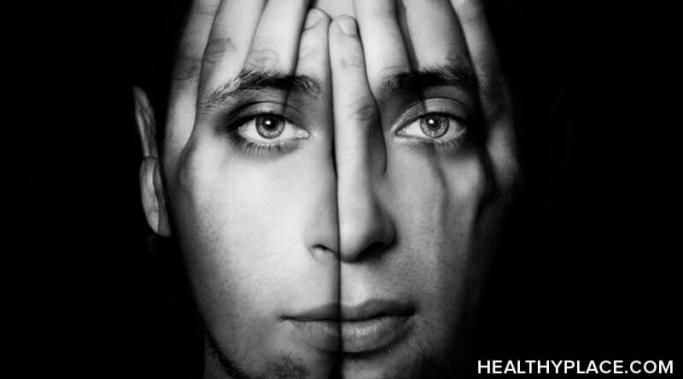I suffer from doctor anxiety. Well, I suppose I suffer from generalized anxiety, but, certainly, some of it belongs to doctors specifically. And this week, I have a great (mis)fortune of meeting two new doctors. Meeting doctors is part of healthcare and part of trying to keep yourself as healthy as possible, so, in that sense, it's a positive thing. On the other hand, the anxiety I feel around doctors is looming large.
How Others See Bipolar
I thought for a very long time that I could outthink bipolar disorder. I thought, if bipolar disorder is in my mind, then my mind can defeat it. I thought that if I just read the right book, learned the right coping skill or understood the right philosophy, I could outthink the bipolar disorder. And this is not an uncommon feeling. It's one of the reasons that people refuse medications or go off their medications -- whether they express it in those words or not. People think -- errantly -- that bipolar disorder is all in their head, and so their head can fix it.
I'm a realist and I have bipolar disorder. I find this is a troublesome combination. I think this is because people often see realism as negativity, especially when you have bipolar. Realism isn't negativity, however. It's okay to be realistic with bipolar.
Do you think you can deal with bipolar disorder alone? Do you think you can keep your bipolar a secret and just do what it requires by yourself? If so, you're not alone. Many people try, sometimes for years, to handle bipolar disorder alone. They do Google searches and online research about bipolar and its treatments and somehow that makes people think they can do it on their own. But I have news for you: you can't deal with bipolar disorder alone.
"I'm the craziest person in the world" is something so many people with a mental illness have said to themselves, and maybe even others. This happens a lot before treatment but can happen even after. Feeling "crazy" is a real thing for so many of us, and feeling alone with feeling crazy is a real thing too. If you've caught yourself thinking, "I'm the craziest person in the world," you need to read this.
People judge how I cope with bipolar. Judging people is an Internet thing and it's a human thing. People just seem to feel free to tell me that how I live my life and how I deal with my bipolar disorder is wrong. I get it, I put myself out there, so that's what happens. Unfortunately, I suspect it happens to a lot of people with bipolar disorder. People just want to judge our bipolar coping skills.
In an interview, Lady Gaga recently talked about taking antipsychotics and her experience with psychosis. This is amazing. Few people with the eminence of Lady Gaga are willing to talk about these subjects -- let alone admit to direct, personal experience. If Lady Gaga takes antipsychotics and talks about her own psychotic break, are we finally okay with psychosis?
Never tell a person with depression to lighten up. Take my advice here, and just don't do it. There is an infinite number of things to say to a person with depression that is appropriate, but telling a person with depression to "lighten up" is not one of them.
Rejection just because you have bipolar disorder sucks. Even I, who have been publically bipolar for almost a decade still find it hurtful when someone rejects me because of my bipolar disorder. I know that rejection hurts everyone, but I think many people would be amazed at how hurtful it is to be rejected because of something that isn't your fault and that you can't control. It's like being rejected because of your height or your mother tongue -- these are things that are just part of you and being rejected because of them feels incredibly, personally painful.
Sometimes our loved ones don't believe in mental illness. This is a sad, but all-too-common, situation. When anyone gets sick, with any illness, we look to our spouse, friends, family and other loved ones to support us. We need them in these tough times. This is normal. But what if your loved ones aren't there for you because your loved ones don't believe in mental illness? Here are some suggestions for what you can do if this happens to you.









